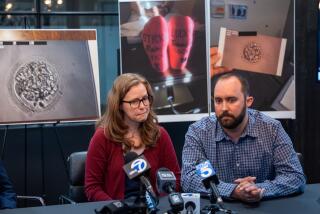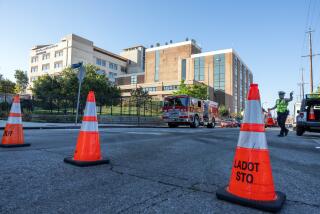Stem cells of 56 child cancer patients lost at Children’s Hospital after freezer malfunction

A freezer malfunction at Children’s Hospital Los Angeles resulted in the loss of 56 children’s blood stem cells that were harvested at the beginning of each patient’s oncology therapy and stored in the event they could prove useful in the future.
“We apologize for any distress or confusion that this has caused our patients and their families,” the hospital wrote in a statement. “If you have not received a letter or phone call from our team, your child is not impacted.”
All but one patient had gone through initial therapy. That patient did require the recollection of stem cells, chief medical officer James Stein said.
A letter sent to families earlier in September informing them of the loss was accidentally addressed to the children — rather than the parents. The hospital has also apologized to parents for the messaging oversight.
The hospital said that the loss of stem cells, which had been placed in long-term storage, has not jeopardized any child’s health. The hospital has also offered to assist families who want to harvest again. But the process can be grueling.
One of the patients described it as “painful.” Sean Anderson Corona, 13, underwent stem cell therapy when he was diagnosed with Stage 4 Neuroblastoma — a cancer often found in the adrenal glands. The boy was hooked up to machines for a daylong process that collects the stem cells from the blood. The blood is then reinfused back into the body.
“I would try to sleep and my body would just start shaking, and then I just started to freak out and I’d start crying,” Corona told ABC-7.
Corona will be cancer-free for three years in November. But his mother, Elizabeth Anderson, said that she worries that if his cancer does return, it may be impossible to harvest more stem cells from his blood.
Stein said that the recollection of patients’ stem cells would only be recommended in the event that they are needed in the event that the patient relapses.
“We think that’s going to be incredibly unlikely so we wouldn’t ask anyone to do that in advance,” he said.
The freezer has since been replaced, and the sensor-monitoring and alert system have been upgraded.
“Obviously, this is a huge deal for us.” Stein said. “We’re reaching out directly to every single family in person to make sure that all their questions are answered.”
More to Read
Sign up for Essential California
The most important California stories and recommendations in your inbox every morning.
You may occasionally receive promotional content from the Los Angeles Times.











